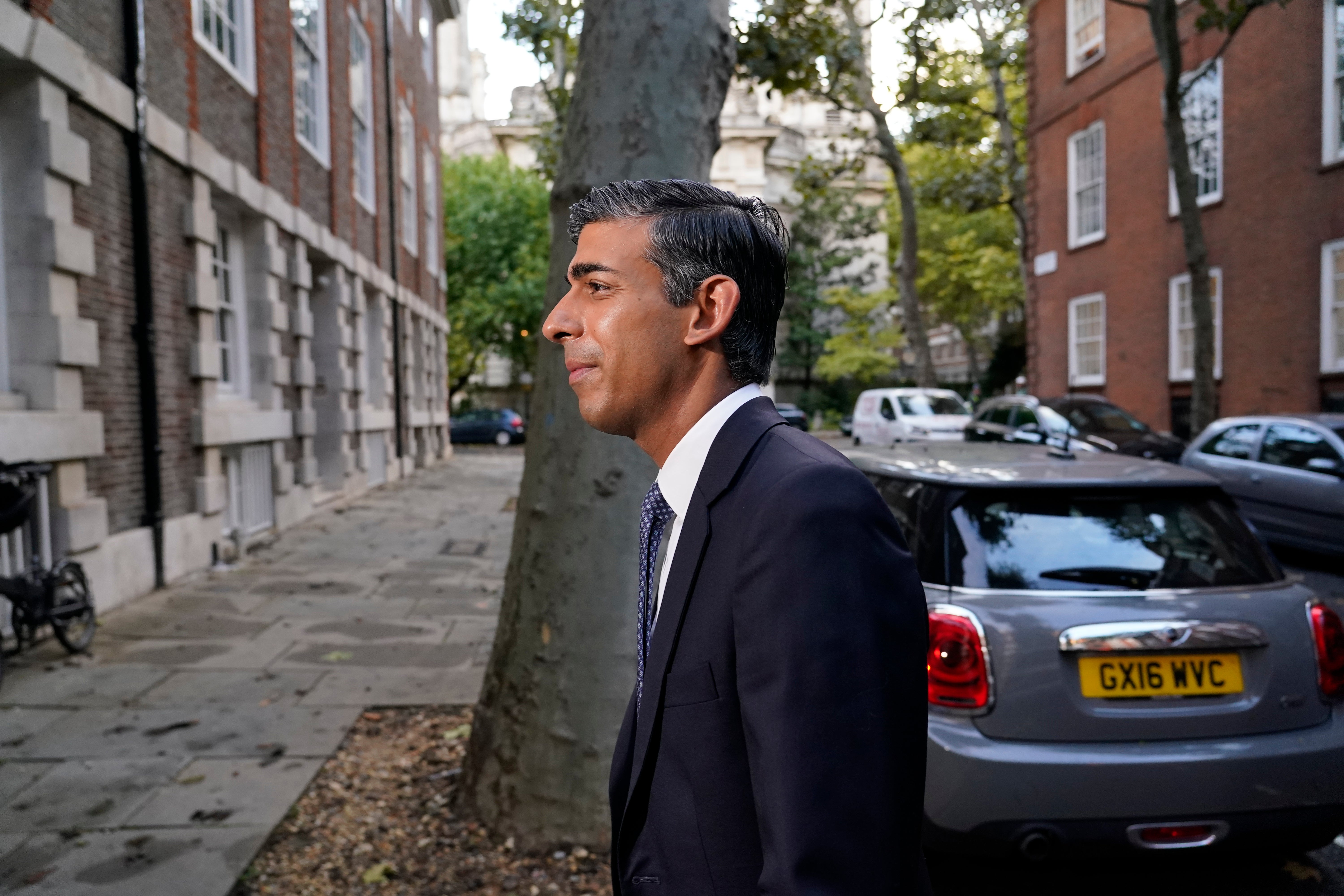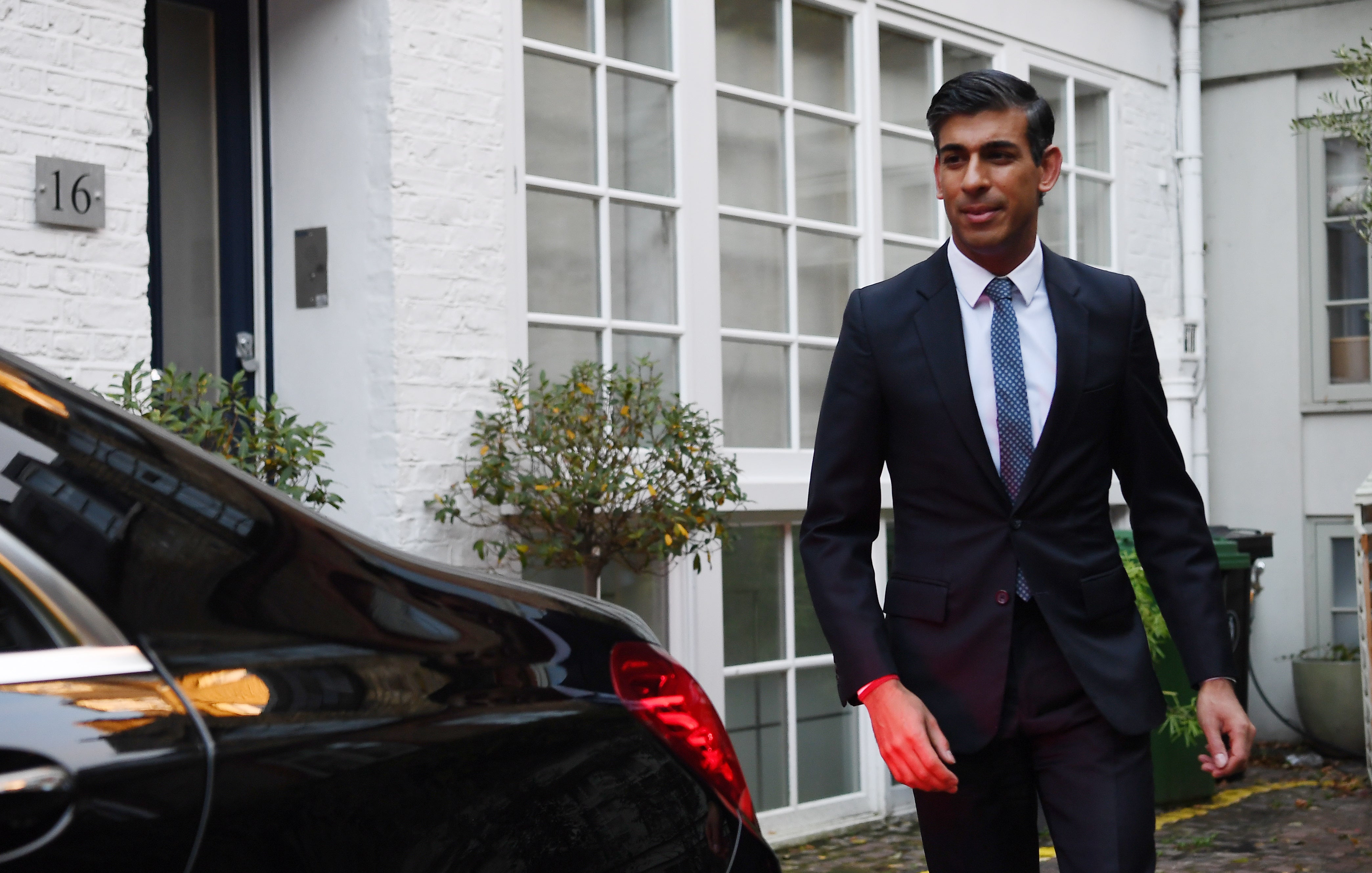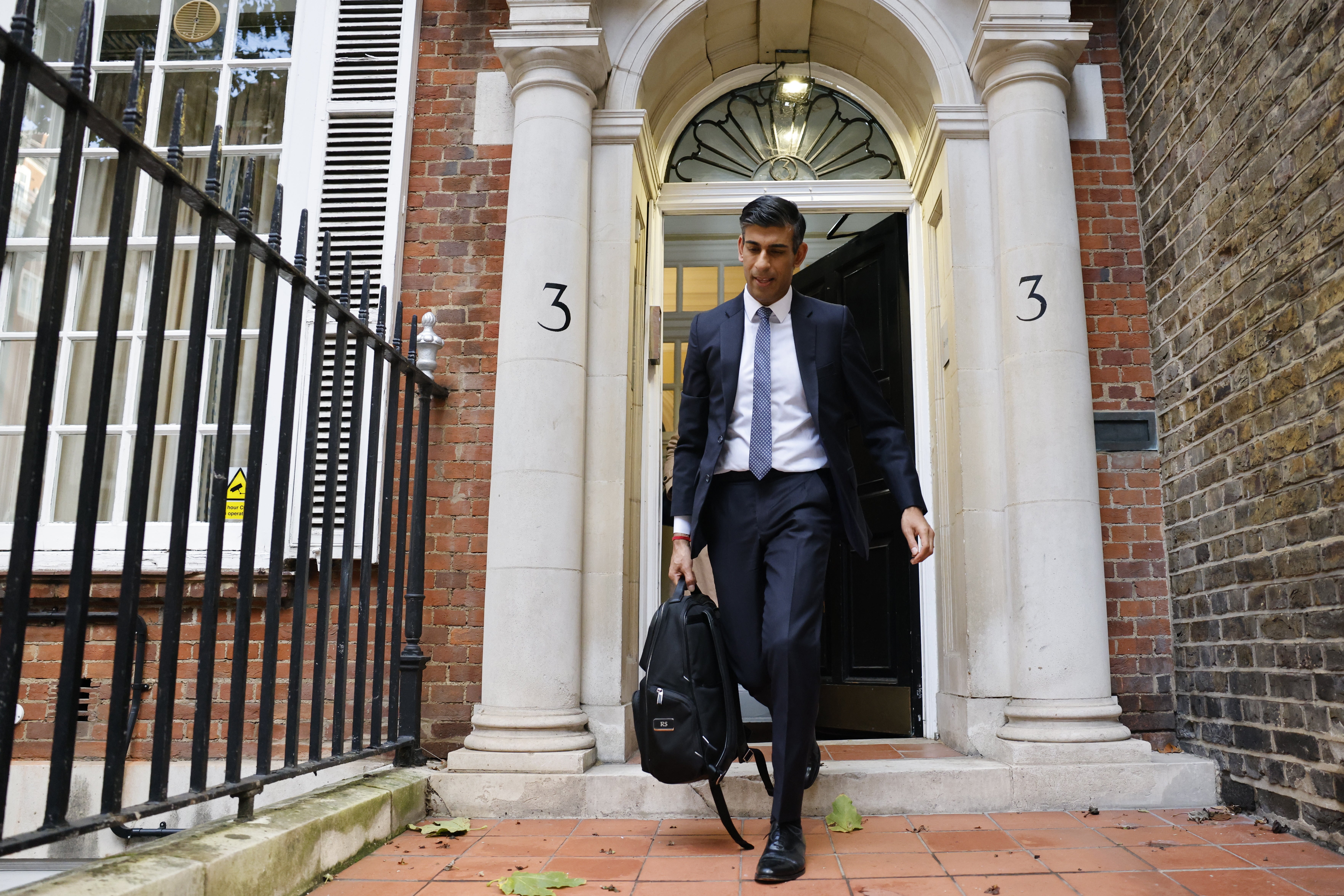
Rishi Sunak has been declared the new prime minister after a brief leadership race that did not seen him conduct a single interview or TV debate.
He promised to bring “integrity, professionalism and accountability” to the role as he threw his name into the ring over the weekend.
It comes just weeks after the former chancellor went head-to-head for the keys for No 10 against Liz Truss, whose resignation sparked the latest battle for the top job.
The previous leadership race - as well as Mr Sunak’s time in No 11 - give an idea of what we could expect from him as prime minister.
Here is where he stands on key issues.
Tax
Unlike Ms Truss, Mr Sunak took a more cautious approach to tax cuts during the last leadership election, calling those promised by his rival a “moral failure” and her plans to raise borrowing to pay for them as “comforting fairytales”.
Instead, the former chancellor promised to “deliver tax cuts that drive growth” - but only in a way that is “responsible” and once the UK has “got a grip of inflation”.
Mr Sunak remained quiet during the market turmoil sparked by Ms Truss’ tax-slashing mini-Budget - although some of his allies did not.
Cost of living crisis
During the race against Ms Truss, he said he was ready to deploy “a few billion pounds” to help struggling households - but charities warned much more was needed to tackle the scale of the issue.
His offer did, however, outstrip what his rival put on the table during the contest.
Immigration
During the leadership contest against Ms Truss, he took a hardline stance against immigration.
He unveiled a plan that proposed a cap on the number of refugees accepted each year and witholding aid from poor countries that refused to take back failed asylum seekers.
It also promised a narrower definition of who qualifies for asylum compared to that offered by the European Convention on Human Rights.
Mr Sunak reiterated his support for the government’s controversial Rwanda asylum policy, saying he would do “whatever it takes” to get it up and running.

Brexit and Europe
Mr Sunak, who voted to leave the European Union, vowed to fast-track the ripping up of EU rules in the previous leadership race.
He promised to scrap or reform all EU law or bureaucracy still on the statute book by the time of the next general election and have initial recommendations on whether each law stays or goes within 100 days.
Law and order
Mr Sunak said criminals who refused to attend court for their sentencing would face longer terms behind bars under his premiership.
In the last leadership contest, he said police would be ordered to take tougher action to tackle “grooming gangs” and officers must be focussed on “fighting actual crime” instead of “policing bad jokes on Twitter”.

Defence
He has previously said the Nato target for 2 per cent of GDP was a “floor and not a ceiling” and said it was set to rise to 2.5 per cent
Mr Sunak noted this was set to rise to 2.5 per cent “over time” but refused to set “arbitrary targets”.
NHS
Mr Sunak promised a “vaccines-style” taskforce to tackle NHS backlogs, saying this issue would be one of his top priorities.
He previously said he planned to expand the network of specialist surgical centres and community diagnostics hubs in order to eliminate one-year NHS waiting times six months earlier than planned by September 2024, and to get overall numbers falling by next year.
Climate change and net zero
The Tory leadership hopeful said he remained committed to hitting the target of net-zero emissions by 2050.

In the last race, he pledged to keep the ban on building new onshore wind farms, but wants to introduce a legal target to make Britain energy self-sufficient by 2045 by overseeing a massive expansion in offshore turbines.
Foreign affairs
Mr Sunak has declared China “the biggest-long term threat to Britain”.
He promised to close all 30 of Beijing’s Confucius Institutes in the UK and “kick the CCP [Chinese Communist Party] out of our universities”.
Additional reporting by Press Association







